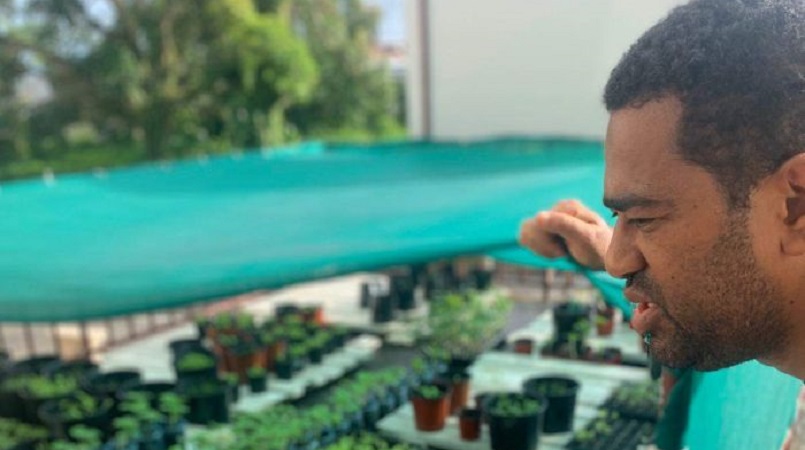
Amid fears the Pacific could face food shortages during coronavirus lockdowns, city people across the region have been returning to their 'roots' and establishing their own backyard gardens.
The Pacific has a high dependency on food imports; for example, Fiji imports 85 per cent of its rice from Vietnam and Thailand.
Pacific Beat understands that the Australian government is currently reviewing each Pacific nation's food security risk, with some concern that while borders may be left open for cargo, not all ships may continue to operate.
Pacific governments are aware of the issue too and in Fiji, the government has launched its Farm Support program, that aims to boost production of short term crops and been giving out seeds for free as part of its Home Gardening initiative.
"We are urging the other household members to come forward to pick up the seeds at no cost and take little bit of effort to raise your own vegetables in your backyard, utilize the backyard and substitute homes consumption from imported products," the Fiji Agriculture Minister Mahendra Reddy said recently.
And many people in the Fijian capital Suva, and other major Pacific towns are turning to backyard gardening, including one of Fiji's leading lawyers, Filimoni Vosarogo.
He and his family started experimenting last year but Mr Vosorogo says that he's spent even more time and energy in his home garden during the Suva COVID-19 lockdown."
"I've been gardening since day one of the lockdown. Day one of the lockdown was when got all the seeds for the greenhouse," he said.
His wife Sera says their children have been helping in the garden too and they are seeing many benefits.
"We see that everyone is working together, they understand the value of not only working together as one, also because the crisis we are in, they understand that keeping healthy and looking out for one another is more important," Mrs Vosorogo said.
Fiji is not alone in looking at ways to boost its local production.
In Vanuatu, the Agriculture ministry's been selling seedlings too, while in the Solomon Islands' capital, Honiara, people have been getting out in their backyards including Atenasi Ata, the Chief Executive Officer for the Solomon Islands Chamber of Commerce.
"We just started this weekend. The kids are insistent on peanuts! I'm not sure we can feed everyone on peanuts, so it'll be cabbage, eggplant," she said.
"People actually are doing things on their own, with little support, or government support. It's encouraging...getting back to their roots kind movement".
The Solomon Islands' Chamber of Commerce recently carried out a survey of the imported food stocks currently held by food retailers.
"It was looking at rice, it was looking at flour, sugar, soap...most of them have food stocks have enough for maybe six to eight weeks. If we can ensure vessels keep coming in, even with that 14-day quarantine period, then there is a low risk in running out of food," she said.
